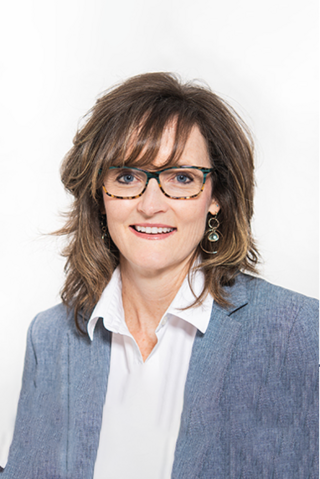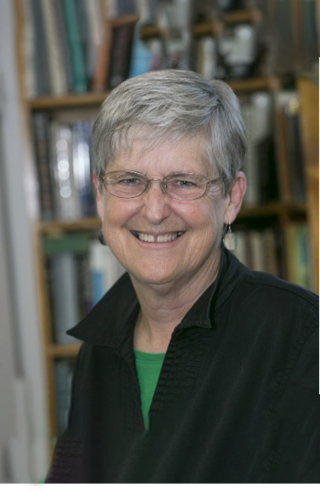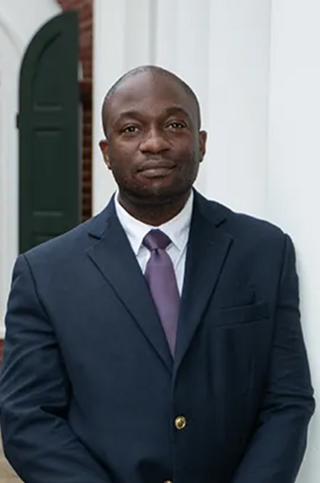2024 Honorees

Shelly Rambo
2024 Distinction in Theological Education
Shelly Rambo ‘99 S.T.M. has been teaching at Boston University School of Theology since 2004. Trained as both a systematic and constructive theologian, she is particularly attentive to the transmission of Christian theologies of suffering, from history to the present. She locates her work at the intersections of Christian theology, literature, and postmodern thought. Her book, Spirit and Trauma: A Theology of Remaining, forges a theology of the Spirit through engagements with postmodern biblical hermeneutics, a theology of Holy Saturday, and contemporary trauma theory. Her second book, Resurrecting Wounds: Living in the Afterlife of Trauma, explores the significance of resurrection wounds in the Christian tradition in relationship to contemporary discourses about wounding in popular culture and the study of trauma.
Her work at the intersection of trauma and religion has led to partnerships with chaplains and international educators in post-conflict areas. Inspired by the work of military chaplains, she was instrumental in designing Boston University School of Theology’s MDiv track in Chaplaincy. She also serves as a faculty leader in Boston University’s Religion and Conflict Transformation program. Her current projects focus on theologies of spiritual care that inform the work of chaplains. Through grants from the Henry Luce Foundation and the BTS center, she is partnering with sociologists to explore the changing demographics of religious life in the US and the education and training of chaplains.
She teaches courses in contemporary theology, feminist and womanist theologies, trauma and theology, postmodern theology, and theopoetics.

David W. Good (1949-2024)
2024 Distinction in Congregational Ministry
Born in Indianapolis, the late David W. Good ‘74 M.S. ‘75 M.Div. grew up in the United Methodist Church, and studied philosophy and English literature in college. Choosing the ministry as a profession, David went to Yale Divinity School and in his last year switched denominations to the UCC (Congregational) and after graduation served as the Senior Minister of the First Congregational Church of Old Lyme, CT, for 37 years until his retirement in 2012. In retirement, he devoteed his time as a volunteer for the Tree of Life ministry that was established by the Old Lyme church under his leadership.
David wrote: “After 9/11 our church intensified its efforts to be in community with those of other faith traditions, which led to my first interfaith journey to Israel and Palestine and engagement on the human rights issues for which our own country is at least partially responsible.” Under David’s leadership, the Old Lyme church established a number of cross-cultural partnerships, including the Storefront School in Harlem, NY, Koinonia Farm where he chaired the Board of Directors, the Crosby Scholarship Fund for Haiti, the Green Grass community on the Cheyenne River (Lakota) Indian Reservation in South Dakota, Central Methodist Mission in Johannesburg, South Africa, and a 12-year partnership with the community of Beit Sahour, near Bethlehem in Palestine.
David led 12 interfaith journeys to Israel and the West Bank. He continued his love of philosophy (Heidegger) and poetry (T.S. Eliot, Emily Dickinson, Robert Frost, William Blake, Theodore Roethke). David was married to Corinne Good of Liverpool, England. His publications include, Zionism Through Christian Lenses edited by Carole Monica Burnett and a collection of sermons, A Place of Grace: The Gospel According to The First Congregational Church of Old Lyme.

2024William Sloane Coffin ‘56 Award for Peace and Justice
Melanie S. Morrison ‘78 M.Div. is the author of five books, including Murder on Shades Mountain: The Legal Lynching of Willie Peterson and The Struggle for Justice in Jim Crow Birmingham (Duke University Press, 2018), and she has written more than fifty articles for American and Dutch periodicals. Her newest book, Letters from Old Screamer Mountain, was published in the fall of 2021 by RCWMS Press.
Melanie is currently engaged in intensive research and writing about her ancestors in Montevallo, Alabama, who accumulated wealth from two systems of theft: the violent dispossession of Native people from their homelands and the enslavement of Black Americans.
As a racial justice educator, Melanie has thirty years of experience designing and facilitating transformational group process. She has served as executive director of Allies for Change, a national network of anti-oppression educators, and as director of the Leaven Center, a retreat and study center in Michigan dedicated to nurturing the relationship between spirituality and social justice. In 1994, she co-founded Doing Our Own Work, an intensive anti-racism program for white people that has attracted hundreds of participants from all across North America.
Melanie has been a keynote speaker at national and regional conferences addressing issues of racial, disability, and sexual justice.
She has a Master of Divinity from Yale Divinity School and a Ph.D. in theology from the University of Groningen.

2024 Lux et Veritas
During his time at YDS and the Institute of Sacred Music, Horace D. Ballard (he/they) ‘10 M.A.R. focused his studies on visual art. Prior to attending YDS, he earned his B.A. in English Literature and American Studies from the University of Virginia. After his time at YDS, he went on to earn an M.A. in American Studies and a Ph.D. in American Visual Culture from Brown University.
While at Yale, he worked at the Yale University Art Gallery, where he realized that he could create a career in the multidisciplinary field of art. Ballard described his belief in the power of art to WBUR, Boston’s NPR news station, saying, “I deeply believe that academic museums have the ability to actively demonstrate the ways by which beauty leads us to justice, the ways by which beauty and all of its aesthetic messiness and capacity and all of its sumptuous subjectivity garners our attention.”
Ballard marks their time at Yale Divinity School as a turning point in their professional and personal trajectory. According to Ballard, “In my last year at Yale, I worked with the wonderful then-Deputy Director Pam Franks and five other student co-curators on the exhibition ‘Embodied: Black Identities in American Art’ that critically attended to the Yale University Art Gallery’s holdings of work made by artists of the African Diaspora over 400 years.”
In June 2021, the Harvard Art Museums announced Ballard’s appointment to the Theodore E. Stebbins, Jr. Associate Curator of American Art position. Commenting on his appointment, Ballard said, “I believe in the capacious potential of academic museums to refine the ethics of our attention … As a graduate student, and I experienced firsthand the power of art to incite empathy, wonder, and sociopolitical change. The field of American art is in a period of reckoning and reflection.”
In their current role at the Harvard Art Museums, which officially began in September 2021, Ballard “investigates the art, ideas, and visual cultures of the United States and the Americas,” with particular interests in “gender and race in 18th- and 19th-century portraiture, colonial men’s fashion, and the visual and material cultures of religion.” They arrived at the Harvard Art Museums with professional experience from the Williams College Museum of Art, Yale University Art Gallery, Rhode Island School of Design Museum, Monticello / Thomas Jefferson Foundation, the Birmingham Museum of Art, at the Fralin Museum of Art at the University of Virginia. His curatorial work continues to explore art through questions around justice, ethics, boundaries, and limits. Ballard affirms the capacity of engagement with art to build empathy, raise questions, spark emotions, challenge assumptions, and provoke long-awaited reckoning.